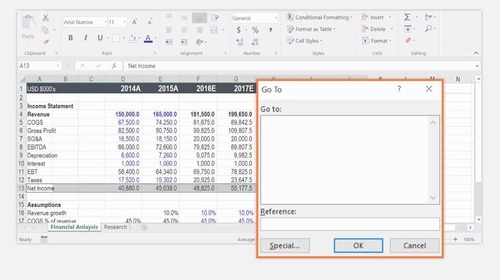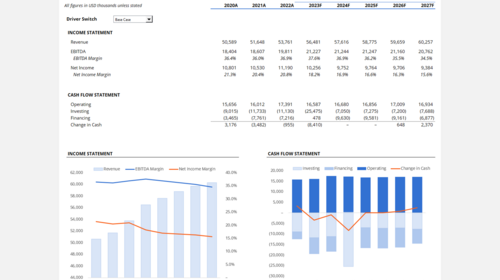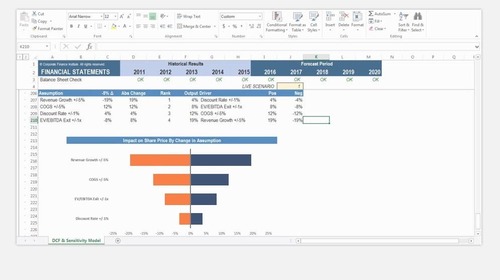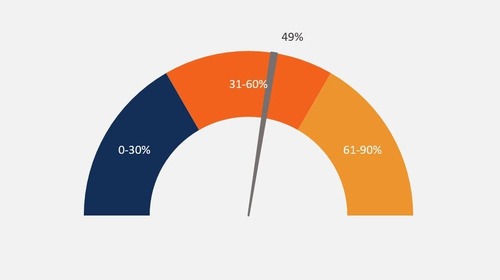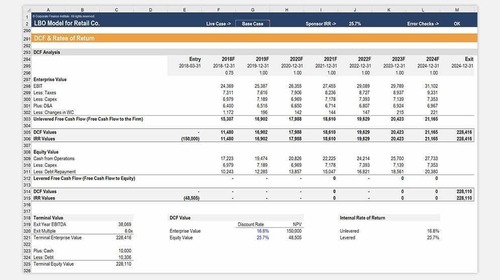Business Banker Career Profile
A financial services professional specializing in solutions for small-to-medium-sized businesses
Over 1.8 million professionals use CFI to learn accounting, financial analysis, modeling and more. Start with a free account to explore 20+ always-free courses and hundreds of finance templates and cheat sheets.
What is a Business Banker?
Business bankers are financial professionals in client-facing advisory roles, specifically for businesses. They may be sales focused (i.e. business development), support focused (i.e. customer service), or a combination of both. Bankers offer business banking solutions and deliver a straightforward suite of banking products and services, the most common being business checking and savings accounts, credit to support working capital and capital investment, and treasury and payment services.
While the terms business banker and commercial banker are often mixed in usage, business bankers are more commonly associated with small-to-medium-sized enterprises. These are typically owner-operated businesses, with annual revenue of less than $5 million, and credit needs of less than $1 million.
Business bankers can be found in many banks, credit unions, and private lending institutions. Specific roles and responsibilities will depend on how the firm segments its markets. Bankers may work closely with retail banking at a branch or they may be aligned within the commercial banking portfolio.
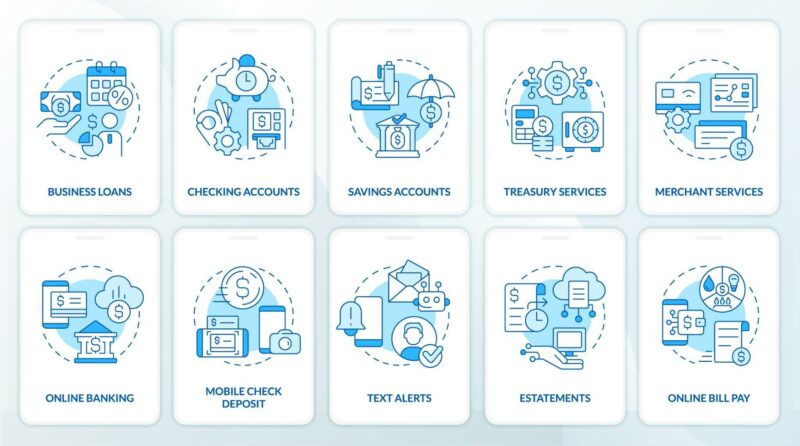
Key Highlights
- Business bankers are financial advisors in client-facing roles, typically for small-to-medium-sized businesses.
- Bankers are often industry generalists who engage and consult with various businesses, gather needs, and offer suitable financial solutions.
- Successful bankers possess a combination of service-based skills (such as relationship building, organizational, and management skills) and technical skills (such as business and financial assessment).
Business Banking Job Overview
A business banker’s job can be broadly categorized into two main functions.
Business development
- Build, maintain, and expand existing customer relationships: Bankers that best match the needs of their business customers and their firms’ offerings can generate opportunities to grow the share of wallet and strengthen the relationship. For example, the banker’s portfolio of clients may be grouped by the local retail branches they support.
- Source opportunities to make recommendations to prospective businesses in the community: Bankers consider financial positions, business needs, and suitability for banking products and services. Small and medium-sized businesses such as mechanic repair shops, plumbing and trades, franchises, and small professional firms are the mainstay of a banker’s portfolio. Typical businesses require a few customizations to tailor the terms and conditions of the offerings (rates, fees, collateral, etc.).
Support
- Serve as the point of contact for business customer inquiries, and redirect to specialists if the firm size permits separate roles (e.g., centralized call center for credit cards). Every contact is an opportunity to gather and meet the business’ needs.
- Sustain transactional activities such as opening business accounts, providing banking information, and conducting outreach due to risk and fraud management policies.
- Provide sound advice and guidance to businesses on a holistic level. Bankers are finance leaders in their community who support the execution of desirable business strategies (such as buying inventory and property for growth) or overcoming financial challenges (including financing trade receivables and necessary working capital).
Required Skills in Business Banking
Both soft skills and technical skills are helpful for a successful career as a business banker.
- Effective communication and interpersonal skills are essential to relationship building. Client-facing roles must attract and engage with prospects and clients; experience in service-based industries tends to be attractive to firms looking to fill business banker roles. Engaging, influencing, gaining trust, and handling conflicts over various channels are all useful skills.
- Sales and marketing skills are linked to the drive and motivation associated with sales-focused professions. For example, attractive qualities for a banker include those who can gain trust, negotiate and convert pipelines to sales. Business bankers must leverage both referrals and relationship networks as part of their marketing efforts.
- Organizational and time management skills, and attention to detail. Balancing a high volume of client demands, addressing shifting priorities, and minimizing wasted efforts are all vital abilities. For example, a banker may waste time and effort structuring an unsuccessful deal if a credit concern is unaddressed (or a detail was overlooked).
- Financial and risk assessment are technical skills that go hand in hand. Clients may provide rudimentary financial information for review with each credit request, along with authorization to assess their personal creditworthiness. Business bankers evaluate deals to maximize the chance of approval by an adjudicator and achieve their sales goals.
- Business acumen and general industry knowledge are advantageous for bankers. By understanding the business environment, bankers focus on workable structures under the customer’s circumstances and the firm’s policies (i.e. quantitatively and qualitatively). Exceptional deals can take more effort, may receive stricter terms of approval, and likely require client negotiations to convert less desirable options into a sale.
Common Tools for Business Bankers
- Communication tools vary, as firms have diverse resources and policies due to security, audit, and record retention reasons. Working from employee-owned devices (phones, tablets, etc.) is a trend that is accelerating.
- Customer relationship management tools (CRMs) help track and maintain client interactions, useful for continuity (e.g. holiday coverage or staff turnover) and sales management (e.g. calling activity and pipeline tracking).
- Banking information systems are typically customized and firm-specific, although new technologies have contributed to the standardization toward common platforms that are less costly to develop and maintain as a group rather than individually. Many firms may compete more effectively with “commercial off-the-shelf” solutions (e.g. document and record keeping, credit, spreading, adjudication, and risk monitoring systems).
A Typical Day in Business Banking
Many business bankers would tell you that no two days are totally alike, but there are some thematic consistencies.
- Morning is often spent catching up on administrative duties and preparing for client meetings. If it’s a funding day they’ll likely be on the phone with their client, the middle office, and the client’s legal counsel to make sure everything is lined up to advance on time.
- Mid-day includes scheduled and unscheduled meetings with new opportunities, from the retail branches and other networks, due to the high volume of clients in a business banker’s portfolio. There may be internal meetings with other folks in the bank (financial planners, mortgage bankers, etc.) to look for cross-selling opportunities; the same is true of accountants and lawyers in the community, people that have their own business development mandates to satisfy.
- Afternoons may be spent in the community and business development activities such as prospecting for clients and booking initial appointments. Once or twice a week many bankers attend networking events, panel discussions, or chamber of commerce-type events to get relevant industry information or to try and drum up new business opportunities.
Business Banking Qualifications and Experience
- Employers seek candidates who have completed a minimum of high school education, with at least several years of work experience within the banking or finance industries.
- A college degree in a related field (such as accounting, economics, etc.) is a strong plus, as are finance or banking certifications.
- Business development and prospecting capabilities, such as previous experience in sales or service-based roles.
- Ability to process business information gained from coursework in accounting, finance, or practical experience gained in prior roles.
- Knowledge of computer software (Microsoft Suite, Google Suite, etc.) and systems, as well as the mental agility to learn firm-specific systems.
Compensation for Business Bankers
Compensation for business bankers varies by experience, competition within a region or location, and the overall profitability of the firm they work for.
Base pay may be comparable to a manager at a local branch but less than a manager of a larger full-service location at the same firm.
Variable compensation includes bonuses and commissions tied to their individual and the organization’s performance. Achieving or exceeding such performance measures is a factor in considering total compensation and other benefits.
Additional Resources
Interested in learning more about a career in business banking?
Enroll in Careers in Commercial Banking for an even more in-depth look at this dynamic role within the banking industry.
Create a free account to unlock this Template
Access and download collection of free Templates to help power your productivity and performance.
Already have an account? Log in
Supercharge your skills with Premium Templates
Take your learning and productivity to the next level with our Premium Templates.
Upgrading to a paid membership gives you access to our extensive collection of plug-and-play Templates designed to power your performance—as well as CFI's full course catalog and accredited Certification Programs.
Already have a Self-Study or Full-Immersion membership? Log in
Access Exclusive Templates
Gain unlimited access to more than 250 productivity Templates, CFI's full course catalog and accredited Certification Programs, hundreds of resources, expert reviews and support, the chance to work with real-world finance and research tools, and more.
Already have a Full-Immersion membership? Log in
